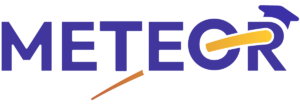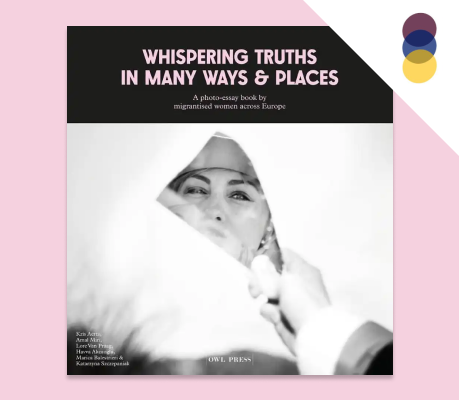 https://www.synyo.com/wp-content/uploads/SYNYO-NEWS-featured-image-NEW01009401EN.png
400
459
leo
https://www.synyo.com/wp-content/uploads/2017/09/synyo-logo.png
leo2026-02-01 13:41:502026-02-03 10:18:50GreenEsteem: Project for sustainable Nature-Based Solutions through Co-Creation Launched
https://www.synyo.com/wp-content/uploads/SYNYO-NEWS-featured-image-NEW01009401EN.png
400
459
leo
https://www.synyo.com/wp-content/uploads/2017/09/synyo-logo.png
leo2026-02-01 13:41:502026-02-03 10:18:50GreenEsteem: Project for sustainable Nature-Based Solutions through Co-Creation LaunchedMETEOR

METEOR kicks off: EU-funded programme to transform doctoral training and researcher skills
The METEOR Programme: participants will combine online training with two in-person METEOR Academies, team up across countries and disciplines, and develop proposals aligned with the UN SDGs. We’re also happy to share early work package highlights—WP3 has produced the training-resource templates, and WP2 is advancing its Europe-wide study on doctoral education.
Programme highlights
METEOR’s training journey blends online resources, peer-mentoring groups, and two in-person METEOR Academies designed to practise transversal skills—teamwork, project design and management, communication, and intercultural collaboration—in authentic settings. The Programme page details participation, time commitment (approx. 1 hour/week with peaks), mentoring support, and the two-Academy cycle that anchors learning and proposal development.
First METEOR Academy: dates & locations are announced
- Denmark — Roskilde University: 12–16 January 2026
- Finland — University of Jyväskylä: 19–23 January 2026
- Türkiye — Hacettepe University: 26–30 January 2026
- Cyprus — European University Cyprus: 2–6 February 2026
- Spain — CEEI Burgos: 9–13 February 2026
Work package updates
WP3 — Training resource templates delivered
WP3 has created the common training resource templates that underpin METEOR’s online learning offer. The templates align learning outcomes, activity design, and assessment with the programme’s transversal-skills focus—ensuring consistency across modules and a smooth learner experience.
WP2 — Research on “Doctoral Education and Training in Europe”
WP2 is progressing its evidence base on doctoral training structures, outcomes, and societal impact across partner countries. This research will inform both the refinement of METEOR’s resources and the project’s policy recommendations—connecting what we teach to how doctoral education can evolve system-wide.
Project impact
The METEOR project is designed to transform doctoral education by equipping PhD students and early-career researchers (ECRs) with essential transversal skills, fostering interdisciplinary collaboration, and strengthening the link between research and societal impact. By providing structured training and hands-on experience, METEOR prepares researchers to work effectively in academic, industrial, and policy-driven environments.
Impact on Researchers
METEOR directly supports PhD students and ECRs, offering high-quality training and opportunities to develop skills in teamwork, communication, and innovation. Through in-person training activities and online engagement, participants will benefit from innovative training resources. The program enhances employability, career readiness, and researchers’ ability to collaborate across disciplines and sectors.
Institutional and Policy-Level Impact
METEOR engages supervisors, university administrators, and policymakers to improve doctoral training structures. Universities and research institutions will benefit from a stronger focus on interdisciplinary collaboration and practical skill development, making doctoral programs more relevant to modern societal and labour market needs.
Shaping the Future of Doctoral Education
METEOR’s impact will be reinforced through evidence-based policy recommendations aimed at reshaping doctoral education at institutional, national, and European levels. By building strong partnerships, fostering collaboration across disciplines, and preparing researchers for diverse career pathways, METEOR contributes to a more innovative and socially responsible research ecosystem. The projects income will sustain through the METEOR Competence & Career Centre beyond the project’s duration.
Partner events and outreach
January 2025 — Open University launches METEOR (UK).
At the Seminar on Global Education and Digital Transformation, METEOR was presented to ~45 participants from academia, industry, and NGOs spanning Europe, Africa, and South America. OU’s WELS leadership positioned METEOR within an evidence- and AI-enabled agenda for educational impact.
February 2025 — Research Seminar 2025 (Norway).
At Nord University, 70+ researchers and advisers discussed the future of research communication and doctoral education. Prof. Anne Marit Valle outlined METEOR’s approach to cross-disciplinary, impact-oriented skills for PhD candidates.
March 2025 — IX Meeting of Young Entrepreneurs, CEEI Burgos (Spain).
Fifty-eight participants explored METEOR via pitches, coaching, and a “Startup Resurrection” session, engaging master’s/PhD students and founders with innovation-focused skill paths.
May 2025 — Vocational Training Exhibition, CEEI Burgos (Spain).
Through a dedicated booth, METEOR reached 500+ visitors from VET schools, universities, and startups, highlighting how eco-outwards research and teamworking skills support doctoral and early-career development.
June 2025 — SIPED National Conference (Italy).
The University of Verona presented METEOR under the theme “Quality of Education as Social Responsibility,” contributing to debates on transformative pedagogy and doctoral training reform.
July 2025 — UNEB briefing for PhD coordinators (Brazil).
UNEB introduced METEOR’s objectives and structure to coordinators across 29 campuses, preparing recruitment pipelines and cross-faculty support for candidates.
Links
https://www.meteorhorizon.eu/news/
https://www.meteorhorizon.eu/meteor-programme/
https://cordis.europa.eu/project/id/101178320/pl
Keywords
Doctoral training, PhD, transversal skills, early-career researchers, interdisciplinary collaboration, research impact, Horizon Europe, policy, METEOR Academies




